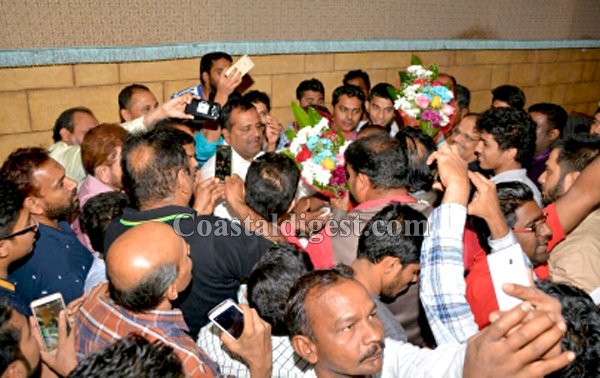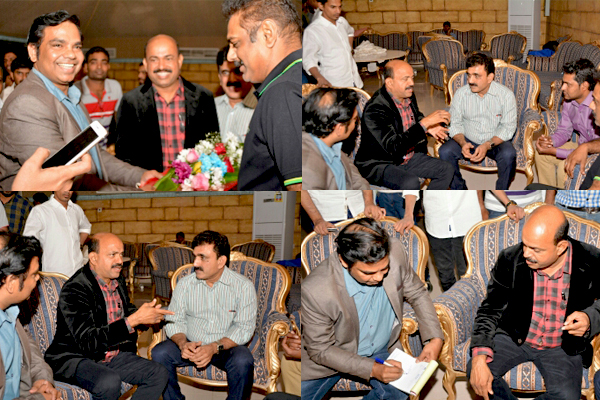Riyadh, Oct 30: Karavali Welfare Association Riyadh (KWAR), a prominent charity organization of non-resident Indians from coastal Karnataka in Saudi Arabia has demanded direct flight service between Managluru and Riyadh.
A delegation of KWAR led by its president Santhosh Shetty and PRO Parvez Ali met the food and civil supplies minister U T Khader during on the sidelines of a cultural programme in Riyadh recently and urged him to exert pressure on the airlines to launch the direct flight between two destinations.
The minister was duly reminded of the several efforts made earlier by various organizations from Karnataka. The delegation also appreciated the efforts of Mohamed Asif, the founder and CEO of Amaco group of companies and coastalidgest.com and the Mr Khader himself in this regard.
Mr Khader, who also represents Mangaluru assembly constituency, responded positively to the request and assured of his continuous efforts in future as well.
The KWAR delegation also met the Mangaluru North MLA B A Mohiuddin Bava and urged him to persuade the Air India management to temporarily change their current Mangaluru-Saudi schedules to have a convenient connection to Mangaluru.
The MLA promised the delegation that he will discuss with Rajya Sabha member Oscar Fernandes to meet the concerned authorities.
KWAR cultural secretary Prasanna Rao, joint treasurer Nazeer Ahmed, sports secretary Iqbal Shirva, members Ashwath Rai, GK Shaikh, Aboobacker Irfan and Hameed Nazeer were also present in the delegation.







Comments
The honorable minister also promised to arrange with state govt. authorities to form a welfare scheme to facilitate various govt facilities to NRI Kannadigas under the name of NORKA (Non residence Karnataka Affairs) with immediate effect. He is announced in the recently held Beary Guys Beary Sanghama public gathering at Riyadh.
Riyadh Mangalore flight already in the pipe line.
Ut khader sab if possible we need one small hindu temple inside the airport. it will be much better that we can pray and move towards our destination
Dear UTK
I request you to provide a prayer hall inside the airport. Due to lack of prayer hall many muslims are facing problems to pray in the airport. Prayer hall in the airport is the need of the hour. Please do the needful at the earliest.
Riyadh-Mangalore is not cost effective for airlines....that is why they don't go with this adventure...even if they initiate...cost for passengers will be more...
Add new comment